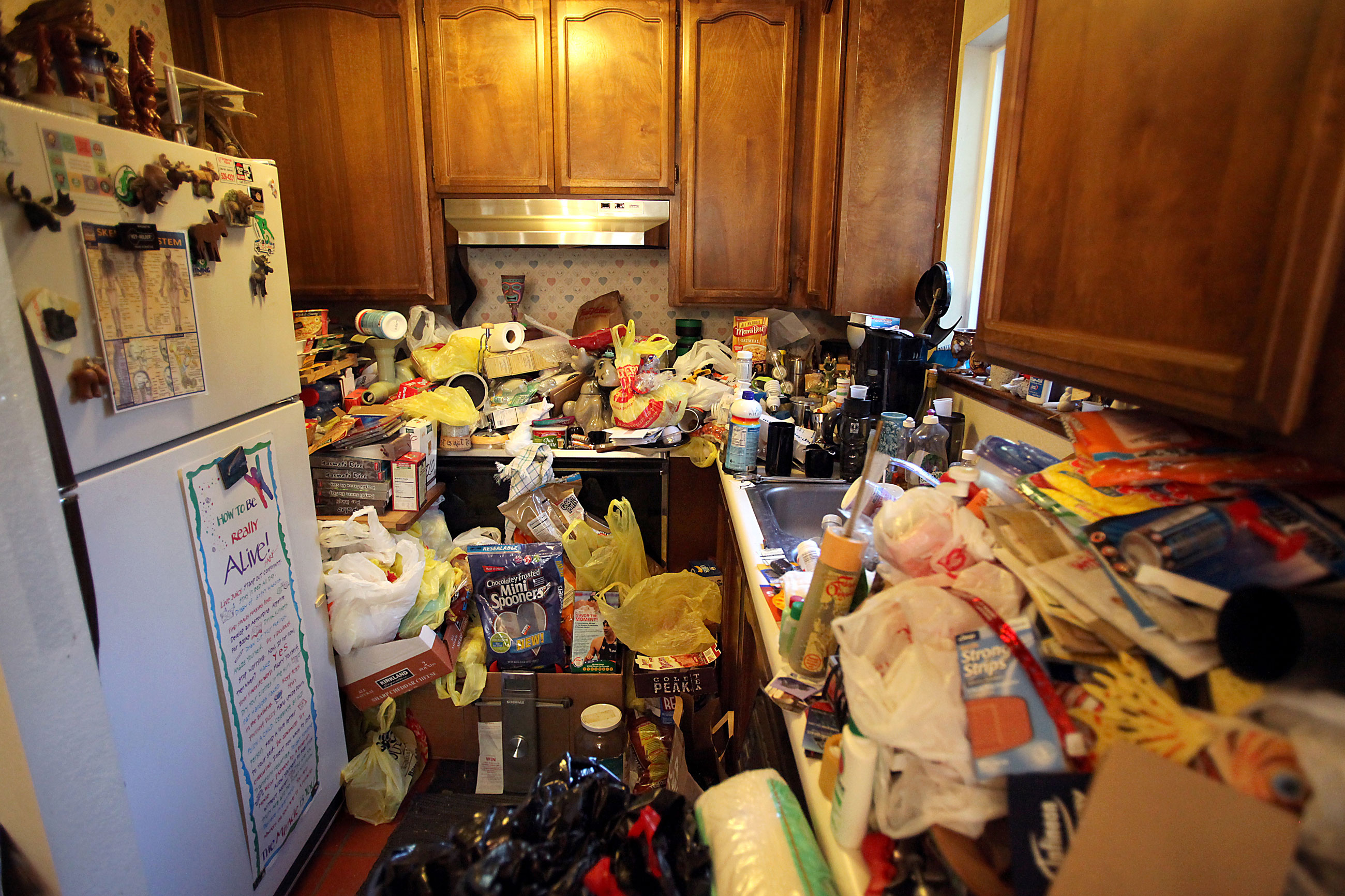
As Sholl notes, as far back as the 14th century, "Dante reserved the fourth circle of hell for the hoarders and the wasters". While this can seem like the obvious end point of consumer culture, of exhortations to buy and buy some more, this kind of behaviour has existed for centuries, if not all of human history. Sholl and her mother live in the US but there have been cases of hoarding on every continent except Antarctica in Melbourne, Australia, a quarter of all deaths in house fires in the last 10 years have been attributed to it. Almost everyone I mention it to seems to have a story, from a friend whose uncle's house was too messy to enter to another whose grandmother kept everything, right down to a bulging bin bag labelled "pieces of string too short for practical use". And while it is often held at arm's length (hoarders dismissed as "crazy cat ladies", for instance) traces of such behaviour are common. It has been recognised in children as young as three – some of whom won't allow their used sticking plasters to be thrown away – and is thought to affect up to 2% of the population. Hoarding was defined by two American doctors in 1996 as "the acquisition of, and failure to discard, possessions that are useless or of limited value, resulting in clutter that renders living spaces unusable and causes significant distress and impairment". Sholl's memoir is a window into a world that is, at once, strange and strangely familiar. And while her mother had often denied having a problem and generally seemed oblivious to the chaos, "At that moment she knew it too. "I thought: there's something really wrong here," says Sholl. (After much wrangling, Helen allowed her to throw away three pairs.) Then, beneath a pile of wool, lava lamps and newspapers, she discovered a large, mysterious, featherlight box: Roger's ashes. Sholl found seven pairs of elbow protectors, collected for the day when her mother would finally start rollerblading. The hallway was filled with jumpers, boots, coats, marshmallows, unopened letters, ironing boards and dozens of white plastic bags still packed with purchases. "I tricked her slightly by saying, 'Look, if home healthcare nurses have to come in, your house could be condemned.'" Her mother concurred, but, "Only because she was going into hospital," says Sholl. Sholl was horrified – she'd had fantasies of burning the place down – but finally agreed on condition that she could clean up. She would send Sholl and her younger brother walking through the bitingly cold, night-time streets in pyjamas as a punishment she regularly pulled Sholl's hair and taunted her about her fear of snakes.įour years ago, Helen was diagnosed with colon cancer, and it was suggested her house be put in her daughter's name, in case the cost of treatment threatened her home. Her mother was a committed nurse, a creative woman, with a difficult, neglectful family background herself, who could care for her children one moment and be highly unpredictable the next. Sholl's parents split up when she was seven, and she cleaned for her much loved mother from then on, looking after the front garden so that friends wouldn't guess at the mire beyond the porch.


The state of the place ate away at her, an uncomfortable bond between a mother and daughter whose roles had, says Sholl, long been reversed. She and her husband resolved to clean up and, with Helen fighting them all the way, they gathered a mound of rubbish bags and seven car loads of possessions for recycling.
Bathtub diogenes syndrome full#
There were "plates full of hard-as-a-rock spaghetti," she writes, "containers of motor oil, calculators and flashlights and key chains still in their packaging, knitting needles, magazines, bunches of brown bananas, and fast-food soda cups bleeding brown stickiness". Sholl describes the details of that scene in her gripping memoir, Dirty Secret: A Daughter Comes Clean About Her Mother's Compulsive Hoarding. "I could tell she wasn't able to cook, because the stove was piled high with pans and dishes, so I said: 'What's going on? Why haven't you cleaned?' And she just said: 'I don't have time to clean.'" On one memorable trip to her mother's house, "The scene was just pathological," she says.


 0 kommentar(er)
0 kommentar(er)
